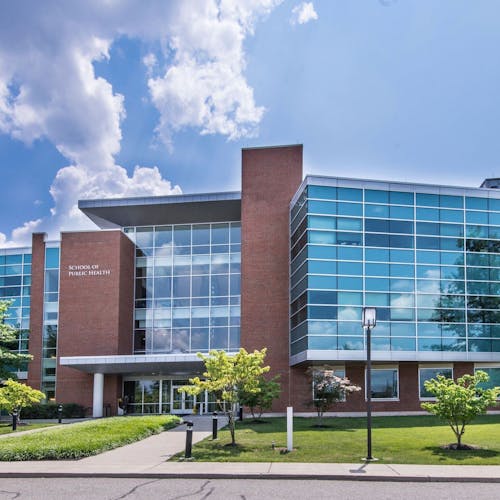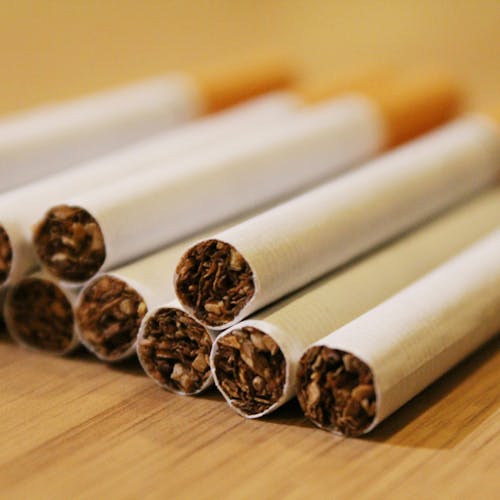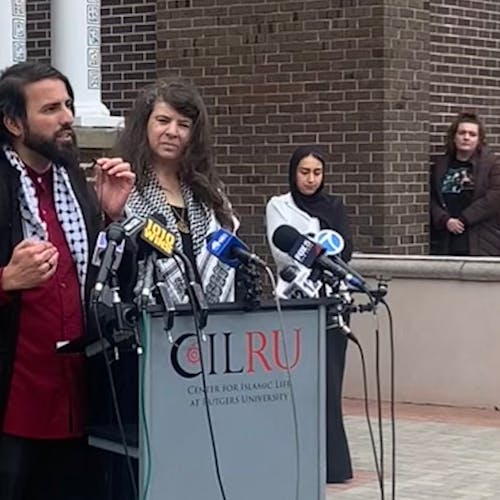U. course looks at homophobic language, opens student dialogue

Brendon Votipka created a new “Research in the Disciplines” writing course at the University this semester, titled “That’s So Gay,” to open up a dialogue about the implications of casual homophobic language in society.
Votipka, a part-time lecturer for the School of Arts and Sciences Writing Program, said he began developing the course when Trinyan Mariano, who oversees the Research in the Disciplines courses as assistant director in the Writing Program, asked him to pitch an interesting course.
“In a way, designing this course was a dream come true,” he said. “I’m passionate about facilitating conversation about queer issues and am thankful to work for a state university that encourages diverse conversations in the classroom.”
The first phase of the course, Votipka said, analyzed diverse sources from author Byrne Fone’s “Homophobia: A History” to Macklemore and Ryan Lewis’s song “Same Love” to dissect homophobic language and labels.
Many words and phrases used to describe non-normative sexualities have changed and evolved especially in recent history, he said.
Votipka said the word “homophobic” has been used throughout the past century to describe people opposed to open gay and lesbian expression of identity, but recently The Associated Press has switched it for the term “antigay.”
“The first term might validate that a person who reviles homosexuals because of an incurable fear or legitimate phobia, whereas ‘antigay’ can reveal the political position that is more accurate for a politician or institution,” he said.
He said the terms we use to discuss such issues change rapidly, and the class focused discussion on the motivations and implications behind these changes.
He said students in the course also read and analyzed academic studies on these topics.
As with all other “Research in the Disciplines” course, the students spent the second half of the course developing unique and original research projects, Votipka said.
“Students in the first iteration of ‘That’s So Gay’ knocked my socks off with fascinating projects,” he said, “Topics included sexism within homophobia, gay teen substance abuse, Christian and Jewish inclusion and exclusion, the outing of Frank Ocean as bisexual on Tumblr, and queer portrayals in fashion, advertisement [and] television.”
Votipka said the students in the course were as diverse as the research projects themselves in terms of sex, gender, sexuality and experience with the material.
“Some students came to the course very well-read in queer studies literature, but for most students this course is the first academic platform they’ve had to discuss their questions, feelings and theories about LGBT identity,” he said.
Votipka said the assistant directors of the Writing Program that he has worked with have been very supportive of the course.
“Although, when I say the title to some of my more mature colleagues who are unfamiliar with phrases like ‘no homo,’ the focus of the course often takes extra explanation,” he said.
James Carroll, a School of Arts and Sciences first-year student who took the class this semester, said the most transformative part of the course was reading and analyzing academic sources focused on homophobic language.
“There was a technique we used, called ‘10 on 1,’ in which we would take one phrase and write 10 implications and really analyze and contrast how words are used across different sources,” he said. “That was pretty transformative for me.”
Carroll said his final research project focused on antigay feelings within Chinese immigrant religious movements in the United States.
“We are becoming more accepting [in the U.S.], but I really wanted to look at how the issue of homosexual expression collides with religious expression,” he said.
Carroll said originally he was uncomfortable with the openness and free expression of the course, but eventually he came to appreciate the analytical and productive flow of ideas.
But Mariano said she was very excited to run the new course because it allowed for a safe and academic environment for students to talk about these issues.
“Professor Votipka was willing to take on a class like this that looked at the language surrounding sexual orientation, which is a very tough topic to discuss in college,” she said. “People shy away from it — it’s uncomfortable for people on any side of it.”
Mariano said a course grappling with these kinds of issues was very timely and necessary at the University, considering the two-year anniversary last semester of University student Tyler Clementi’s suicide and the recent Mike Rice scandal.
“Something we were very careful about doing was making sure we weren’t only appealing to members of the LGBTQ community, that we would have a range of voices represented,” she said.
Mariano said she thought it was enormously important to have these kinds of discussions talked about at the University.
“There have been some amazing conversations and a sense of community built around the course by people from all sides,” she said. “I think the tragedy surrounding Tyler Clementi has given Rutgers the opportunity to lead the way in addressing these issues that need to be addressed at universities nationwide.”



